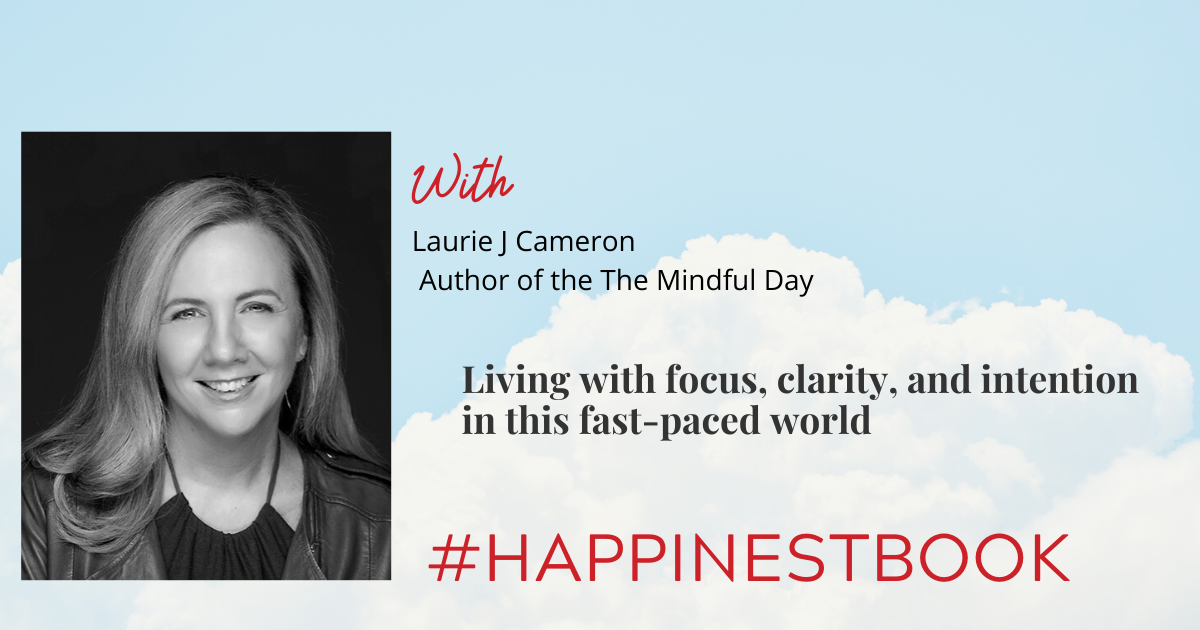Integrating Ancient Teachings into Modern Life to Create a Much Better You
Laurie J. Cameron is the author of The Mindful Day: How to Find Focus, Calm and Joy from Morning to Evening. In her book, Laurie offers practical, step-by-step methods for being mindful–from the morning commute to the dinner table. Laurie is also a leadership coach, teacher and fellow at the Center for the Advancement of Well-Being at George Mason. She is founder of Purpose Blue, a consultancy based on mindfulness.
I’ve seen many people roll their eyes and shake their heads when they hear the word “mindfulness.” They think mindfulness might cause them to lose their edge. They say they don’t have time to focus on mindfulness. But scientific research shows mindfulness improves focus, boosts productivity, lifts moods, and helps people develop greater resilience.
I learned this first-hand after my book, HappiNest: Finding Fulfillment When Your Kids Leave Home, received great ratings‚ much to my surprise—catapulting me into a new sphere with a nonstop to-do list. I went to Laurie’s home exhausted, bewildered and frazzled and found an unshakable center of calm. I didn’t even realize how wound up I was until I listened to the interview a week later. Yikes!
Laurie does not come with incense, candles and a harp. Rather, she boils down ancient teachings and weaves them into practical, step-by-step methods.
If you like what you hear, I’d really appreciate it if you would subscribe, rate and review the show. It’s easy to do on Apple Podcasts, or you can go directly to the podcast section of my website at judyhollandauthor.com.
What you’ll learn about in this episode:
• The capacity to cultivate calm in the chaos of our everyday lives, is trainable.
• We can train out attitude and mindset.
• We can train self-awareness and acceptance.
• Why aren’t we compassionate toward ourselves? We are designed not to be blissful. We are designed for survival. We’ve got an inner voice that is hyper- vigilant.
• We tell ourselves narratives. With mindfulness training, we can separate ourselves from negative narratives. It’s just like going to the gym.
• Our inner voice is not really us. Rather, it is more like a set of inner tapes that came from our childhood. Those stories can cause us to move through time in a harried, frenetic way.
• We can befriend our inner critic and push it out of the front seat and cultivate an attitude of kindness toward ourselves.
• Cultivating self-compassion is taking a U-Turn and directing compassion to ourselves.
• There are many myths regarding mindfulness. People think it will slow them down and they won’t get things done, that they won’t be competitive. In reality, mindfulness gives us a competitive edge.
• Meditation is simply a set of exercises or practices that train the mind. A goalie might train his mind to win an award by watching a water drop fall. Meditation is about breathing.
• Laurie works with CEOs in the United States and Europe to help them return to a calm presence.
• She models sitting like a “majestic mountain,” and bringing attention to your body breathing. Notice your body breathing. Bring your attention away from the popcorn machine of thoughts, the monkey mind and feel air coming into your nose and mouth. You might put a hand on your abdomen. You have begun training yourself to be at ease, to be calm. When your mind wanders during the inhale and exhale, label what the mind is doing, and bring your attention back to breathing. Do this at least five minutes a day.
• Mindfulness meditation is highly correlated with well-being.
• We are trained in a culture of fear. We are addicted to social media, as we get a dopamine high when we see “likes” on our Facebook or Instagram.
• Laurie suggests pausing before we eat to express gratitude. She also recommends setting up a meditation room with symbols or photographs that bring you joy and peace.
• Frenetic energy is contagious and affects everyone else in the room. Complaining about others or gossiping is also “like an influenza” and brings everyone down.
• Laurie says there is no such thing as healthy venting.
• Purpose and meaning are critically important to well-being.





